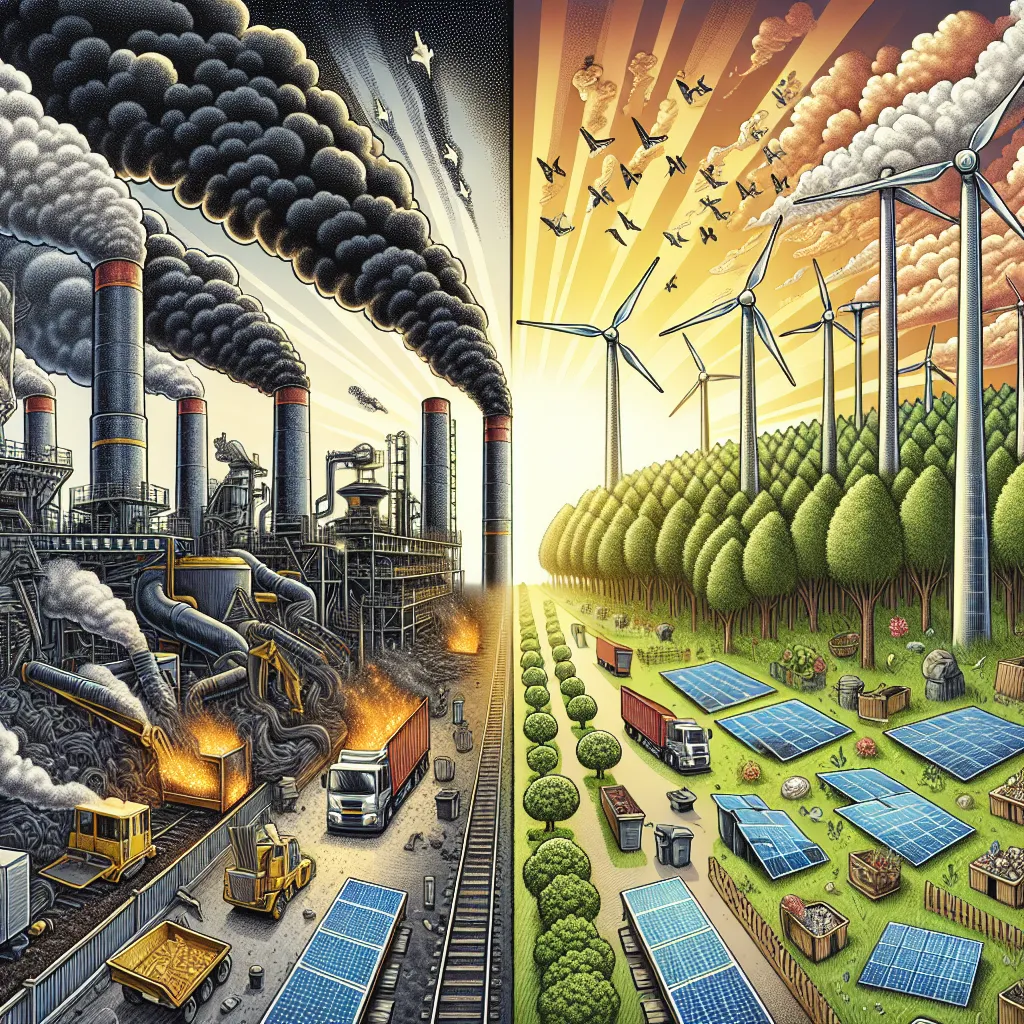Global trade and its environmental consequences have become increasingly significant topics in IELTS Writing Task 2. This theme frequently appears in exams, reflecting its relevance in today’s interconnected world. Based on past exam trends and current global issues, we can expect questions related to the environmental impact of international commerce to remain prevalent. Let’s explore a sample question and provide model essays to help you excel in your IELTS writing task.
Nội dung bài viết
Analyzing the Question
Some people believe that global trade is harming the environment, while others argue that it can actually help protect it. Discuss both views and give your own opinion.
This question presents a balanced argument about the environmental impact of global trade. It requires you to:
- Discuss the negative effects of global trade on the environment
- Explain how global trade might benefit environmental protection
- Provide your personal viewpoint on the issue
Remember to address all parts of the question and support your arguments with relevant examples.
 Global Trade and Environment
Global Trade and Environment
Model Essay (Band 8-9)
Global trade has become an integral part of our modern economy, but its environmental implications have sparked intense debate. While some argue that international commerce exacerbates environmental degradation, others contend that it can foster eco-friendly practices. In my opinion, while global trade has indeed contributed to environmental challenges, it also holds the potential to drive positive change if managed responsibly.
Those who view global trade as environmentally harmful often point to increased carbon emissions from long-distance transportation and the exploitation of natural resources in developing countries. For instance, the shipping industry alone accounts for about 3% of global greenhouse gas emissions. Moreover, the demand for products like palm oil has led to widespread deforestation in countries such as Indonesia, decimating habitats and biodiversity.
On the other hand, proponents argue that global trade can actually benefit the environment through the spread of green technologies and sustainable practices. As an example, the international market for solar panels has driven down costs and accelerated adoption worldwide, contributing to the fight against climate change. Additionally, global environmental standards in trade agreements can encourage countries to adopt more stringent regulations, as seen with the European Union’s influence on its trading partners.
In my view, while global trade has undoubtedly contributed to environmental problems, it also presents opportunities for positive change. The key lies in harnessing the power of international commerce to promote sustainability. This can be achieved through measures such as carbon pricing in international shipping, stricter environmental clauses in trade agreements, and incentives for companies that adopt sustainable practices across their global supply chains.
In conclusion, the relationship between global trade and the environment is complex and multifaceted. While it has contributed to ecological challenges, it also offers pathways to solutions. By prioritizing sustainability in trade policies and practices, we can work towards a future where global commerce becomes a force for environmental protection rather than degradation.
(Word count: 309)
Model Essay (Band 6-7)
Global trade is a big topic in today’s world, and its effect on the environment is often discussed. Some people think it’s bad for nature, while others say it can help protect it. I will talk about both sides and give my opinion.
People who think global trade hurts the environment have some good reasons. First, shipping goods around the world uses a lot of fuel and causes pollution. For example, big cargo ships release a lot of CO2 into the air. Also, some countries cut down forests to make products for other countries, which is bad for animals and plants.
However, there are also arguments that global trade can help the environment. When countries trade, they can share new technologies that are good for nature. For instance, solar panels made in one country can help other countries use clean energy. Also, when rich countries buy things from poorer countries, they might ask them to follow rules that protect the environment.
In my opinion, global trade can be both good and bad for the environment. It depends on how we manage it. If we make rules to reduce pollution from shipping and protect forests, trade can be less harmful. At the same time, we can use trade to spread good ideas and technologies that help the environment.
To conclude, global trade affects the environment in different ways. While it can cause problems, it can also bring solutions. I think we should try to make trade more environmentally friendly so that it helps rather than hurts nature.
(Word count: 263)
Key Points to Remember When Writing
-
Structure: Ensure your essay has a clear introduction, body paragraphs, and conclusion. Each body paragraph should focus on a single main idea.
-
Language: Use a range of vocabulary and grammatical structures appropriate to your target band score. For higher bands, incorporate more sophisticated language and complex sentence structures.
-
Coherence and Cohesion: Use linking words and phrases to connect ideas smoothly. Ensure your essay flows logically from one point to the next.
-
Task Response: Address all parts of the question and provide a clear personal opinion where required.
-
Examples: Support your arguments with relevant examples. For higher band scores, use specific, detailed examples rather than general ones.
Vocabulary to Remember
-
Environmental degradation (noun) /ɪnˌvaɪrənˈmentl ˌdeɡrəˈdeɪʃn/: The deterioration of the environment through depletion of resources.
-
Sustainability (noun) /səˌsteɪnəˈbɪləti/: The ability to maintain ecological balance without depleting natural resources.
-
Biodiversity (noun) /ˌbaɪəʊdaɪˈvɜːsəti/: The variety of plant and animal life in a particular habitat.
-
Carbon emissions (noun) /ˈkɑːbən ɪˈmɪʃnz/: The release of carbon dioxide and other greenhouse gases into the atmosphere.
-
Eco-friendly (adjective) /ˈiːkəʊ ˈfrendli/: Not harmful to the environment.
-
Stringent (adjective) /ˈstrɪndʒənt/: Strict, precise, and exacting.
-
Multifaceted (adjective) /ˌmʌltiˈfæsɪtɪd/: Having many different aspects or features.
In conclusion, the impact of global trade on the environment is a complex and important topic in IELTS Writing Task 2. By understanding the key arguments and using appropriate language, you can craft a well-structured and persuasive essay. Remember to practice writing essays on similar topics, such as the effects of globalization on local economies or the balance between economic growth and environmental protection. Feel free to share your practice essays in the comments section for feedback and further improvement.


